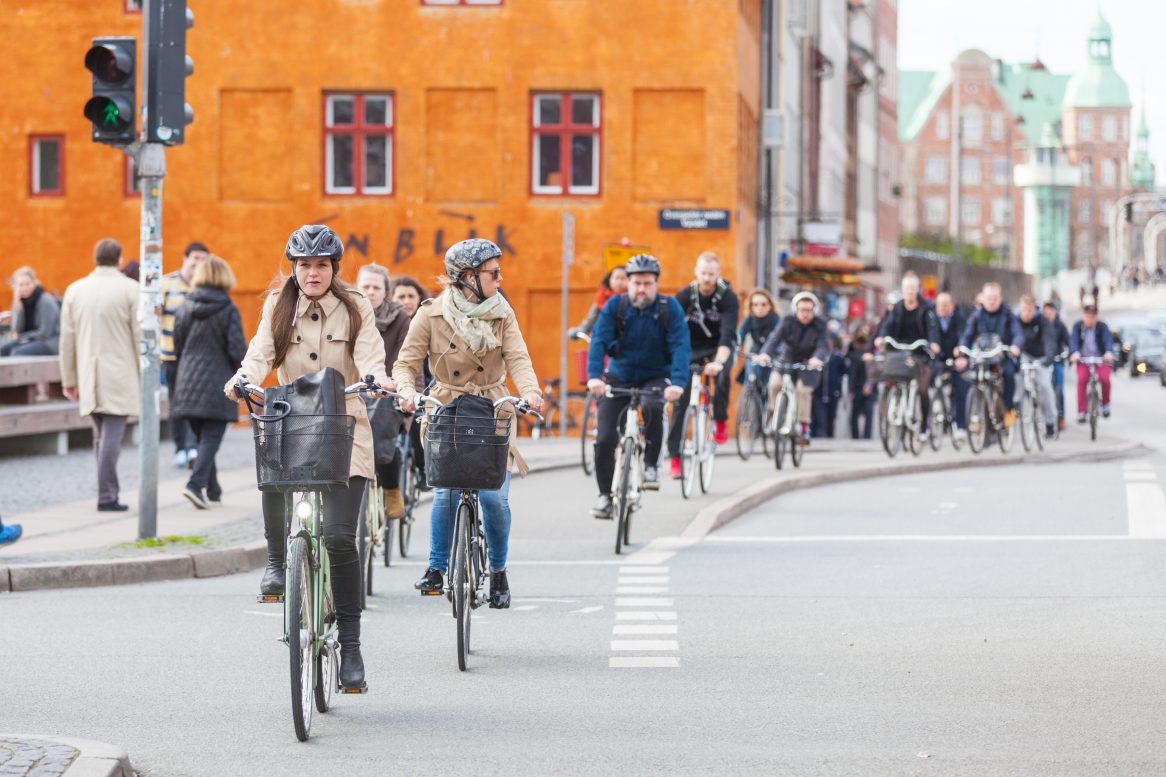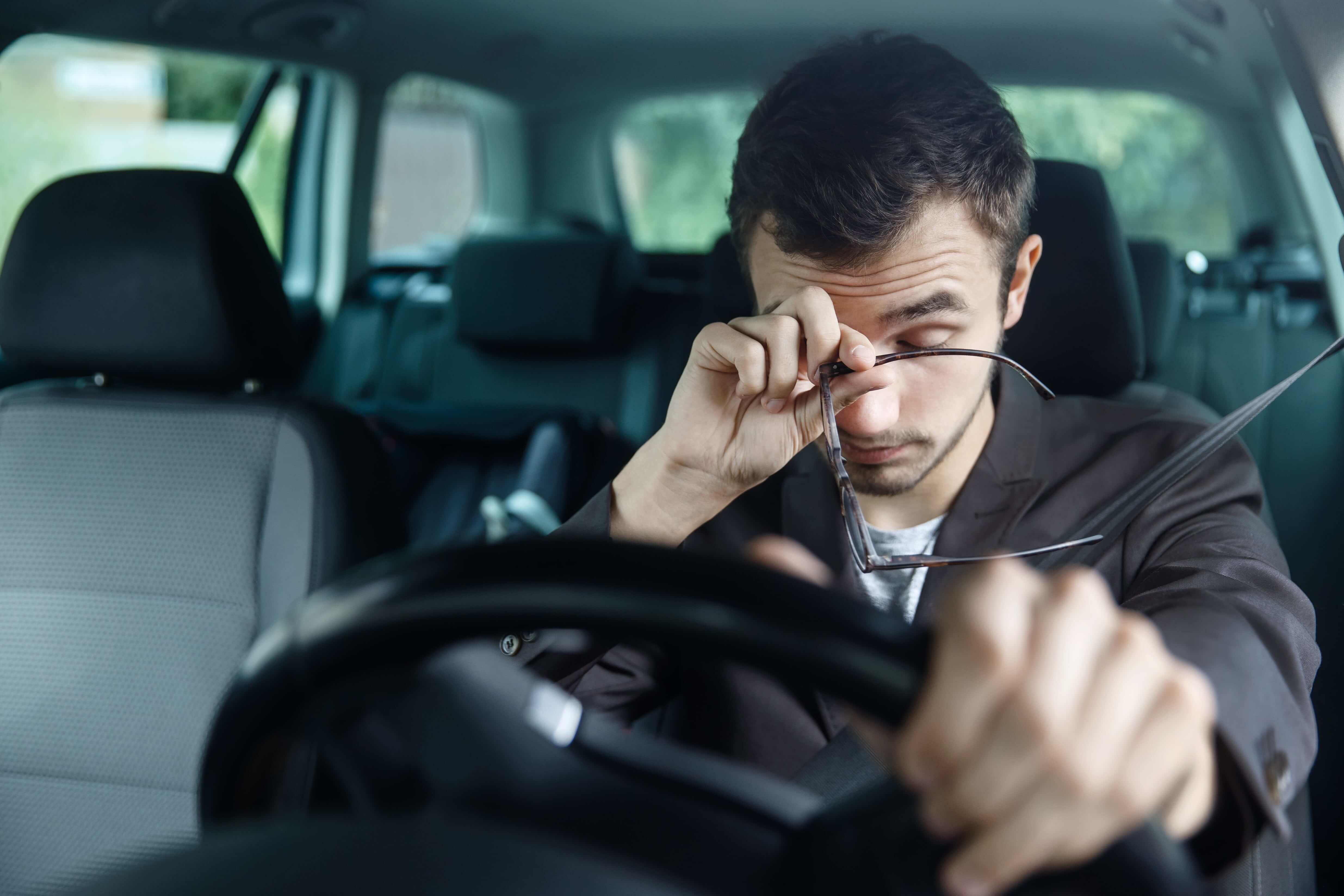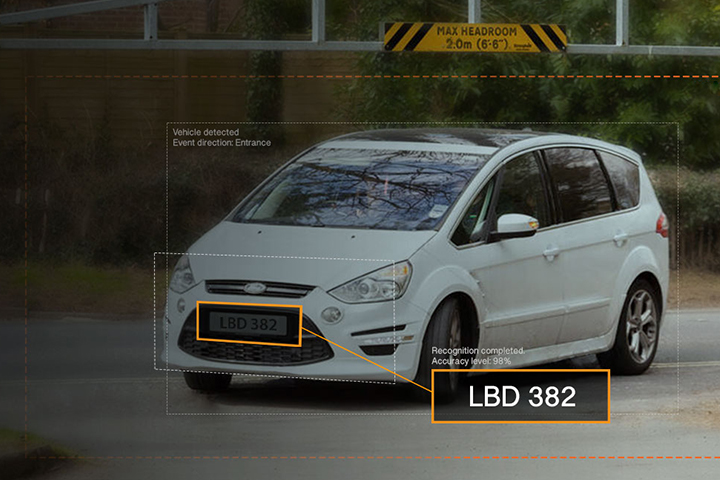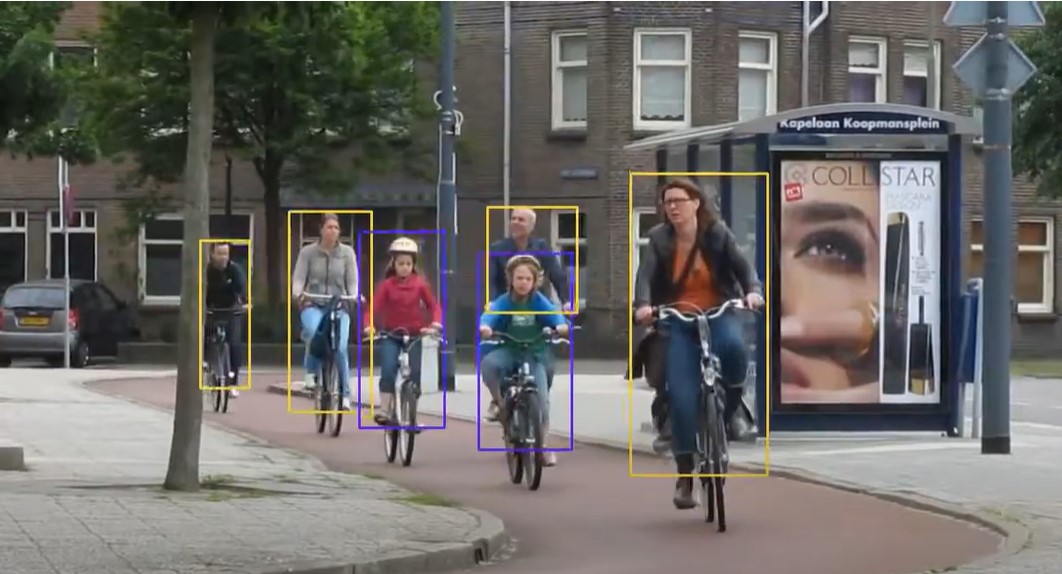Camera-based cyclists detection and helmet use analysis

Our bike and helmet recognition solution is designed to collect, quickly process, and analyze traffic information. It can be integrated to serve different purposes, from fostering public surveillance and safety to promoting healthy lifestyles.
The CV-based cyclist recognition monitoring solution is a ready-to-use product that can be integrated into existing business processes. In particular, it might positively transform retail & distribution, construction, banking & finance, government, and hospitality.
The need for applying cyclist and helmet detection
Wearing specialized bike helmets when riding is crucial to ensure personal safety and prevent potential injury. They’re designed to minimize the risk of serious head injuries in case of accidents and collisions by absorbing and distributing impact force.
Bike helmets can prevent brain trauma – skull fractures, brain hemorrhages, traumatic concussions, and more. This way, they’re protecting the riders from various life-threatening accidents.
As stated to NHTSA, in 2020, there were almost 1,000 cyclist fatalities, which accounted for about 2,4 percent of all traffic fatalities during the whole year.
- Over 4,000 bicycle riders have died between 2010 and 2017 in accidents – 6,7 percent were not wearing helmets at the time of the crash
- Bicycle helmets are reducing the risk of injuries by 48%, severe injuries by 60%, facial injuries by 23%
- About 78% of injuries being experienced by children can be prevented with bike helmets
- Despite the mentioned numbers, only 18% of cyclists are wearing bike helmets
Cyclist and helmet recognition and analysis – our solution
By utilizing artificial intelligence, Abto Software has designed an algorithm for object recognition and analysis. The solution can detect, automatically track, and analyze traffic participants, promoting greater urban safety.
By utilizing computer vision, the algorithm gathers information about every bicycle rider on the desired lane. What’s more, the solution does not only detect traffic participants but analyzes their speed and whether they’re wearing bike helmets to facilitate public safety.
First steps: pedestrian and cyclist detection
Started working on the ambitious project, we covered:
- Dataset preparation (data collection and preprocessing)
- Algorithm training (people and bicycle detection, cyclist detection)
- Model evaluation
- Model integration and testing
Having split the process into several smaller stages:
- At the first stages, we selected an approach, which employs CV-based object detection techniques – the model could recognize people and bicycles separately
- At the next stages, we went with another CV-empowered object detection technique, which provided 97% accuracy and allowed to distinguish pedestrians and bicycle riders, bringing more valuable results
Going further: speed and helmet recognition
Having handled highly accurate cyclist detection, we went with implementing additional features:
- Biker and non-biker detection
- Cyclist count
- Speed recognition
- Helmet detection
This functionality is a weighty contribution to fostering smart traffic in four simple steps:
- Mount a high-speed camera above the desired track
- Set limits
- Detect riders that enter and leave the track
- Receive alerts about riders that exceed speed limits or aren’t wearing helmets
Some models we analyzed were suiting to enable speed recognition and others – to enable helmet detection. To ensure our algorithm could distinguish pedestrians and bicycle riders, track and count them, estimate their exact speed, and recognize whether they’re wearing helmets, we adapted and trained our own AI model.
There was also another pressing problem to handle – for example the model confused hairstyles with helmets. To ensure uncompromised accuracy, we conducted further investigation and trained the custom-built AI model on additional information sets.
Technology stack
To deliver the described Python-based solution, we utilized:
| Tools & technology stack | AI/CV techniques |
| OpenCV | Image recognition |
| TensorFlow | Video processing |
| NumPy | Transfer learning |
| PySide2 | Convolutional neural networks (CNNs) |
Application areas
By enabling cyclist and helmet recognition, our solution provides accurate:
- Cycling flow estimation
- Cycling-lane demand forecasting
- Cycling infrastructure planning
- Smart city adoption
This way, our solution for real-time object identification and tracking might empower:
- Smart transportation – accurately recognizing cyclist behavior, the solution can be successfully applied to improve road safety
- Smart city – the solution is aligning with the concept of smart cities and can be integrated with other IoT applications to create a safer urban network
- City planning – the system can be used by city planners to understand traffic patterns, identify risks, and make informed decisions for insight-driven infrastructure planning
- Law enforcement – the system can be also utilized to enforce helmet usage
- Risk management – insurance companies can access risk factors to offer personalized plans
- Rental services – rental companies can monitor helmet usage to provide real-time alerts
- Traffic studies – traffic authorities can use data collected to fine-tune future policies
- Environmental sustainability – city authorities can utilize the solution for targeted cycling promotion and minimize carbon emissions to support green initiatives
How we can help
Abto Software delivers custom, value-added products by leveraging computational technology and innovation. Our engineers cover everything from initial market research to analysis, planning, design, algorithm training, integration, testing, and maintenance.
The delivered recognition solution is the first step to designing an unprecedented, comprehensive application. Our custom monitoring solution is planned to comprise extra features, in particular age and gender analysis.
Our expertise:
- Artificial intelligence
- Machine learning
- Deep learning
- Natural language processing (NLP)
- Decision support systems (DSS)
- Computer vision
- Visual search, text detection
- Image categorization, content moderation
- Image annotation tool optimization
- Real-time CCTV footage processing
- Post-factum video archive processing
- Near-real-time live stream processing
Our projects:



